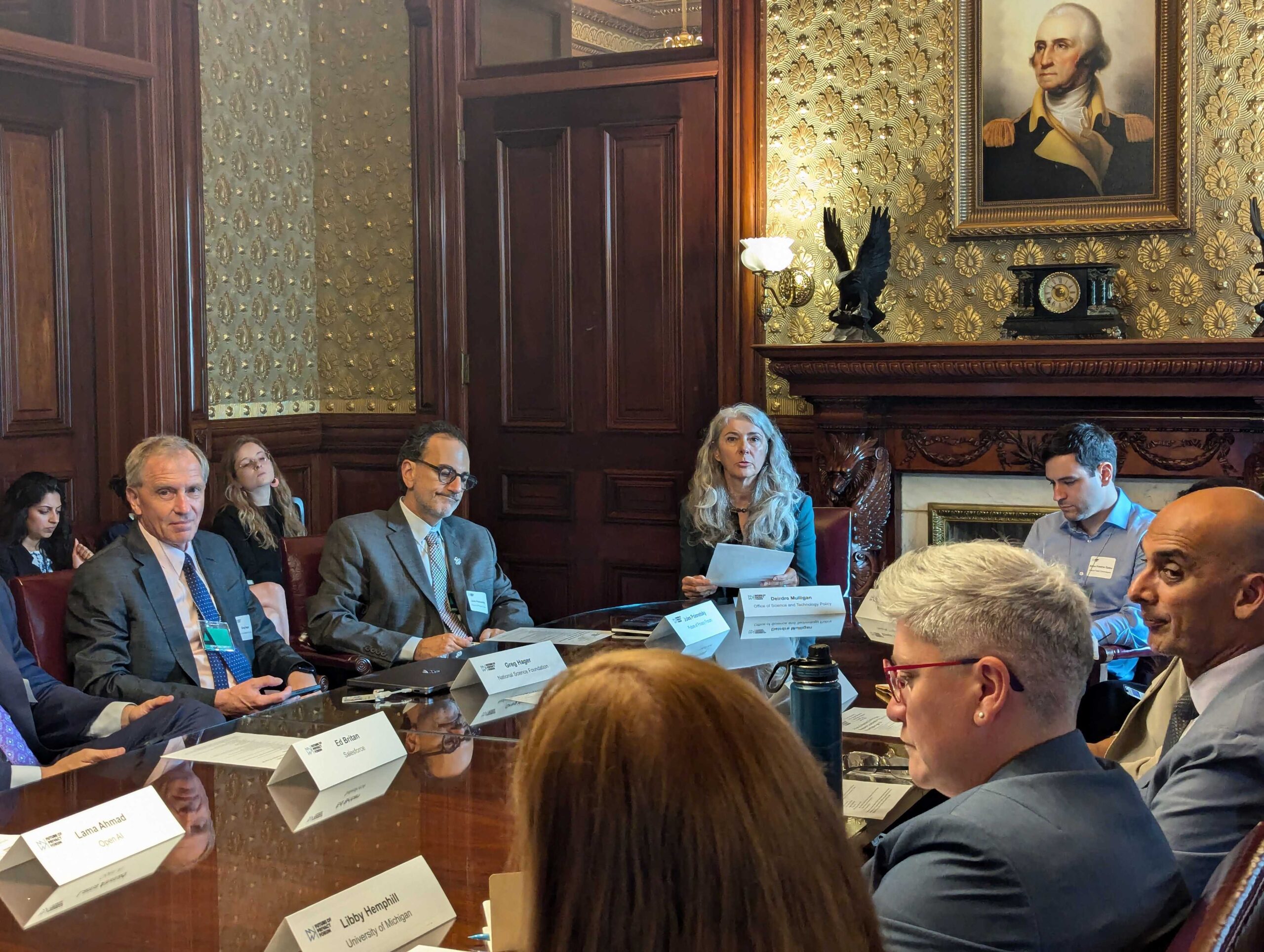
Contextualizing the Kids Online Safety and Privacy Act: A Deep Dive into the Federal Kids Bill
Co-authored by Nick Alereza, FPF Policy Intern and student Boston University School of Law. With contributions from Jordan Francis. On July 30, 2024, the U.S. Senate passed the Kids Online Safety and Privacy Act (KOSPA) by a vote of 91-3. KOSPA is a legislative package that includes two bills that gained significant traction in the […]

Connecting Experts to Make Privacy-Enhancing Tech and AI Work for Everyone
The Future of Privacy Forum (FPF) launched its Research Coordination Network (RCN) for Privacy-Preserving Data Sharing and Analytics on Tuesday, July 9th. The RCN supports the Biden-Harris Administration’s commitments to privacy, equity, and safety articulated in the administration’s Executive Order on Artificial Intelligence (AI). Industry experts, policymakers, civil society, and academics met to discuss the […]

Reflections on California’s Age-Appropriate Design Code in Advance of Oral Arguments
Co-authored with Isaiah Hinton, Policy Intern for the Youth and Education Team Update: On Wednesday, July 17th, the U.S. 9th Circuit Court of Appeals heard oral arguments for an appeal of the District Court’s preliminary injunction of the California Age-Appropriate Design Code Act (AADC). Judges Milan Smith Jr., Mark Bennett, and Anthony Johnstone appeared interested […]

A First for AI: A Close Look at The Colorado AI Act
Colorado made history on May 17, 2024 when Governor Polis signed into law the Colorado Artificial Intelligence Act (“CAIA”), the first law in the United States to comprehensively regulate the development and deployment of high-risk artificial intelligence (“AI”) systems. The law will come into effect on February 1, 2026, preceding the March, 2026 effective date […]

We’re in this Together: Expert Speakers Explore Topics Related to Protecting Privacy, Security, and Online Safety for Young People in Australia
On June 26, the Future of Privacy Forum (FPF) and the Australian Strategic Policy Institute (ASPI) co-hosted an online discussion on Privacy, Security, and Online Safety for Young People in Australia. The panel included welcoming remarks from John Verdi, FPF, and Bart Hogeveen, ASPI, and consisted of experts across all three disciplines, including: The discussion […]

Comprehensive Privacy Anchors in the Ocean State
On June 25, 2024, Governor McKee transmitted without signature H 7787 and S 2500, the Rhode Island Data Transparency and Privacy Protection Act (RIDTPPA), making Rhode Island the nineteenth state overall and the seventh state in 2024 to enact a comprehensive privacy law. The law will take effect on January 1, 2026, and the majority […]

Protected: FPF Training Program 2024 – Main
There is no excerpt because this is a protected post.

The World’s First Binding Treaty on Artificial Intelligence, Human Rights, Democracy, and the Rule of Law: Regulation of AI in Broad Strokes
The Council of Europe’s (CoE) Framework Convention on Artificial Intelligence and Human Rights, Democracy, and the Rule of Law (Framework Convention on AI) was adopted on 17 May 2024, after two years of drafting and negotiation. This is the world’s first binding treaty on AI, focusing on protecting human rights, democracy and the rule of […]

Europe
Featured The FPF EUROPE Team FPF’s efforts in Europe are led by Dr. Rob van Eijk. Rob is an established and well-respected leader in the data protection field. Christina Michelakaki, Vasileios Rovilos, Bianca-Ioana Marcu, and Andreea Șerban complete the team in Brussels. The FPF Europe team seeks to raise awareness and foster debate regarding practical […]

Newly Updated Guidance: FPF Releases Updates to the Generative AI Internal Policy Considerations Resource to Provide New Key Lessons For Practitioners
Today, the Future of Privacy Forum (FPF) Center for Artificial Intelligence is releasing a newly updated version of our Generative AI internal compliance document – Generative AI for Organizational Use: Internal Policy Considerations, with new content addressing organizations’ ongoing responsibilities, specific concerns (e.g., high-risk uses), and lessons taken from recent regulatory enforcement related to these technologies. […]
